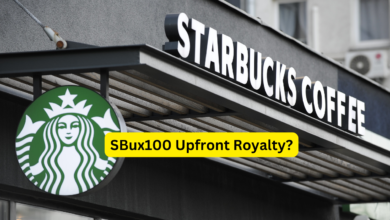King Charles III Monarchy in the Modern Age

The British monarchy has always been a symbol of tradition and continuity, but with the ascension of King Charles III, we are witnessing a new chapter in its storied history. This article delves into the significant aspects of King Charles III’s reign, exploring his role, influence, and the transformative impact he is having on the monarchy in the contemporary world.
King Charles III: A Modern Monarch
King Charles III, born Charles Philip Arthur George on November 14, 1948, became the sovereign of the United Kingdom following the passing of his mother, Queen Elizabeth II. His ascension marks a pivotal moment, bridging a storied past with a dynamic future. As the longest-serving heir apparent in British history, King Charles III has long been an advocate for numerous causes, including environmental sustainability and social reform.
Environmental Advocacy and Sustainability
One of King Charles III’s most prominent contributions before becoming monarch was his unwavering commitment to environmental issues. Throughout his life, he has championed climate action and sustainable development, long before these issues gained mainstream attention. His establishment of The Prince’s Trust, and later initiatives such as the Terra Carta, underscores his dedication to environmental sustainability. As King, his focus on these areas continues, influencing both domestic and international policies.
Modernizing the Monarchy
King Charles III has been recognized for his efforts to modernize the monarchy. Unlike his predecessors, he has embraced modern technology and communication methods to connect with the public. His use of social media platforms to address contemporary issues reflects a conscious effort to resonate with younger generations and maintain the monarchy’s relevance in an ever-evolving society.
Royal Residences: Balmoral and Beyond
Balmoral Castle, located in the Scottish Highlands, has long been a cherished royal retreat. Recently, Sir Keir Starmer, the current Prime Minister, enjoyed his first official stay at Balmoral, highlighting its importance in modern royal engagements. This tradition reflects a deeper connection between the monarchy and political leadership, emphasizing the personal and professional relationships that influence governance and diplomacy.
Balmoral: A Historical Overview
Balmoral Castle has been a royal residence since Queen Victoria’s reign. Its secluded location offers a serene backdrop, ideal for reflection and private discussions. The castle’s architecture, steeped in Victorian Gothic style, and its expansive grounds provide a unique setting for official and informal interactions between the monarchy and government officials.
Current Use and Significance
Today, Balmoral remains a key location for the monarchy, serving as a venue for private stays and official functions. King Charles III’s use of Balmoral continues to underscore its role in fostering close relationships with political figures and reinforcing the monarchy’s connection to the broader British public.
The Role of the Monarch in Contemporary Britain
In contemporary Britain, the role of the monarch has evolved considerably. While King Charles III upholds traditional ceremonial functions, his reign is characterized by a more nuanced and proactive approach to public engagement and social issues. This evolution reflects broader societal changes and the monarchy’s effort to remain relevant in a modern context.
Ceremonial Duties and Public Engagement
King Charles III’s role encompasses a variety of ceremonial duties, from state occasions to official visits. These activities are integral to the functioning of the monarchy, providing continuity and stability. However, King Charles III has also been proactive in addressing contemporary issues, using his platform to raise awareness and inspire action on pressing topics such as climate change, social justice, and community engagement.
Challenges and Opportunities
The modern monarchy faces numerous challenges, including scrutiny from the media and evolving public expectations. King Charles III’s approach to these challenges involves balancing tradition with innovation. By embracing change and promoting transparency, he aims to address concerns while maintaining the monarchy’s dignity and relevance.
The Future of the Monarchy Under King Charles III
Looking ahead, the future of the monarchy under King Charles III promises to be both dynamic and influential. His commitment to addressing contemporary issues, coupled with a respect for tradition, positions him as a pivotal figure in shaping the monarchy’s future. As King Charles III continues to navigate the complexities of his role, his leadership will undoubtedly have a lasting impact on the institution and its place in British society.
Anticipated Developments
As King Charles III’s reign progresses, several key developments are anticipated. These include further modernization of royal practices, increased emphasis on global issues, and continued efforts to connect with diverse audiences. His leadership will likely continue to evolve, reflecting both his personal values and the broader societal shifts occurring in the UK and beyond.
King Charles III’s Influence on Global Diplomacy
King Charles III’s influence extends beyond the borders of the United Kingdom, playing a significant role in global diplomacy. His tenure has seen an active engagement in international affairs, where he leverages the monarchy’s historic ties with various countries to foster diplomatic relations and promote global cooperation. His role in international environmental summits and charitable initiatives demonstrates a commitment to addressing global issues through collaborative efforts. By engaging with world leaders and international organizations, King Charles III contributes to shaping policies and fostering a shared vision for a sustainable and equitable future.
The Monarch’s Role in Shaping National Identity
As King Charles III steps into his role, he is also instrumental in shaping and reflecting national identity. His public addresses and participation in national events offer a platform to reinforce British values and unity. By championing causes that resonate with contemporary society, such as community cohesion and cultural heritage, King Charles III helps to cultivate a sense of national pride and collective purpose. His leadership style and public engagements are pivotal in molding how the monarchy is perceived and its role in defining the national character in a rapidly changing world.
Conclusion
King Charles III stands as a symbol of transition and continuity within the British monarchy. His reign represents a blend of respect for tradition and a commitment to addressing contemporary challenges. As he navigates the complexities of his role, his influence will shape the future of the monarchy and its role in modern Britain.





One Comment